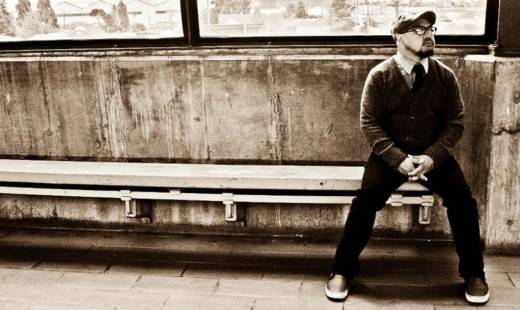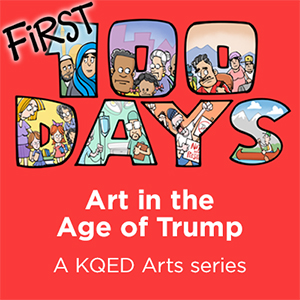Ed. note: As long as humans have been making music, it’s been used as a form of protest. As part of KQED Arts’ 100 Days project, documenting artists’ responses to our new administration in its earliest days, I’ve asked Bay Area musicians to get in touch with songs they’ve written or recorded that serve as reactions to our current political climate. Over the next couple months, I’ll be highlighting the most compelling entries I receive, along with a few words from the artist about their inspirations and intentions.
Kiwi Illafonte, “Seeds”
https://www.youtube.com/watch?v=JO664NjJeNI&feature=youtu.be
“I wrote the lyrics to ‘Seeds’ not long after Trump’s election was confirmed. In addition to my own thoughts about it, the song was also informed and inspired by the insights of my friends and community folks, many of whom are local activists and organizers,” Kiwi Illafonte told me by email when I asked about this new track. Its title plays on the expression — often associated with the Zapatista movement — “They tried to bury us; they didn’t know we were seeds.”
A longtime Oakland resident originally from LA, Illafonte’s probably best known as one-third of the hip-hop trio Native Guns. But he’s also a volunteer educator with ROOTS (Restoring Our Original True Selves), a community education program that works with the Asian and Pacific Islander population at San Quentin State Prison. He’s also worked with MIGRANTE Northern California, an organization that advocates for Filipino migrant workers, as well as PAWIS (People’s Association of Workers and Immigrants), a local group focused on rights for Filipino domestic workers, caregivers, and other migrant workers in the East Bay.
“The feeling that stuck out to me the most was disappointment and anger — at the lack of common sense and humanity — of those who supported Trump,” he said, “as well as uncertainty about what a Trump presidency would mean to those of us in this country who exist on the margins. I felt writing a song was the most healthy means I had to process all those emotions.”




